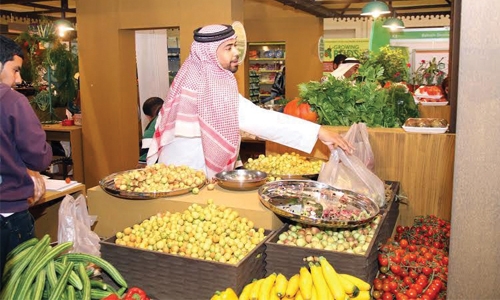Bahrain ranked 7th highest in ME food security
Manama : Bahrain enjoys a higher level of food security when compared to other countries in the Middle East.
A new research has revealed Bahrain ranked seventh in the Middle Eastern region. The study titled The Global Food Security Index (GFSI) 2016, conducted by Economist Intelligence Unit.
The international study included 113 countries, and Bahrain was ranked 33 globally with an index score of 70.1. Globally, USA was ranked the highest with an index score of 86.6.
‘Affordability’, ‘Availability’, ‘Quality’ and ‘Safety’ were the main indexes used in the study while 28 unique indicators were also used.
Bahrain received high scores for ‘Presence of food safety net programmes’, ‘Access to financing for farmers’, ‘Agricultural import tariffs’ and ‘Agricultural infrastructure’.
The Kingdom’s weaknesses were noted as ‘Public expenditure on agricultural R&D’ and ‘Political instability’.
Middle Eastern countries including Turkey, Tunisia, Egypt, Jordan, Morocco, Algeria, Syria and Yemen were slotted lower than Bahrain.
However, Gulf Cooperation Council (GCC) countries including Saudi Arabia, United Arab Emirates, Kuwait, Oman and Qatar were ranked above the Kingdom.
According to the report, the GCC countries performed well on ‘Affordability.’
“They perform well on affordability because of their extremely high levels of annual income per head, averaging US$67,795; this compares with an average of US$41,092 across high-income countries and US$1,424 in low-income countries, and a global average of US$18,711,” the report said.
“Additionally, the GCC members rank consistently high on the agricultural import tariff indicator. To address the widening gap between consumption and production, GCC countries have steered down their agricultural imports tariffs.
“Some 60–90pc of food consumption in the GCC countries is met by imports. Unlike other countries, they have steered away from notions of food self-sufficiency, in part because they do not rely on revenue from taxes on trade,” the report added.
Related Posts

